- Home
- Chris Wraight
Child of Chaos
Child of Chaos Read online
Contents
Cover
Child of Chaos - Chris Wraight
About the Author
A Black Library Publication
eBook license
CHILD OF CHAOS
By Chris Wraight
So, what do you want from me?
Perhaps some kind of explanation? Some kind of great redemptive story, to explain the way events transpired? Perhaps there was a reason, a causal mote that made everything explicable, and in turn, when you understand that, you might loathe me a little less than you do at present.
But there isn't one. I never had time for redemption. I am, as you might say, elemental. Axiomatic. Somebody within this whole skein of false turns had to be.
As it turns out, I am compassed. I am what I am - that is my blessing, and it is, for symmetry's sake, my curse.
Now wait. I get ahead of myself. An explanation was desired, and so I should start on Colchis. You could make a case that everything - everything - started there. What a desperate, awful place to start.
Then the beginnings always are, I suppose.
* * *
Gods, I hated Colchis. I hated the heat, I hated the dust and the thick sweat of it. Even before I knew that other worlds existed, I cursed the gods for making my home so unbearable. There's a reason why religions prosper in deserts - there's nothing else to do but ponder the misery.
I used to sit in the shadow of my father's house, squatting as the air shimmered, and wait for scorpions to scuttle out of the glare. I'd catch them in my bare fingers and hold them up, watching them wriggle. I'd pluck their limbs off, one by one. Sometimes I'd get stung, sometimes I wouldn't. It was a kind of game, though not a very good one. Once, a sting made me feverish for a month, leaving me boiling on my mat inside with visions and shaking. I might have died. I didn't care much, either way. Once I'd recovered, I was sitting right back out in the porch, waiting for the next one to scamper into range. Ever since then, I've played the same game: get close to the danger, see how long you can last before it bites you.
It doesn't matter which town that was. I can barely remember it myself. They were all the same - thick with filth and haze and the stink of perspiration and refuse. My parents were exasperated with me. They wanted me to learn a trade; get ahead, find something useful to do. I didn't want any of that. I wanted to be rich without trying. I wanted to have slaves and concubines. I wanted to play my scorpion game with people. For a long time, it wasn't clear how I would be able to achieve that, but fate had a way of leading me into opportunity.
I had noticed, being an observant sort, that the Covenant had become the kind of organisation I might do well in. It is fashionable now, among those who still pretend to keep records and tell histories, to think of the Covenant as some wellspring of piety - the precursor to the fundamental religion that came later. Perhaps it was, in some places. Maybe in Vharadesh they did things properly. Out in the provinces, though, the priests had begun to develop a reputation. They drank. They gambled. They were violent, and they used that violence to gather up riches. Even the devout knew that the tithes they paid didn't all end up embellishing temples. The whole edifice was like a spoiled aquifer, with a cold and oily heart locked away from the searching light of the sun.
So you can understand the attraction. I could see myself in those robes, with a palace of my own where a fountain would tinkle in the courtyard and a chamber full of young things would lounge around in silks and count my coins. Getting there was not straightforward, though - for all their decadence, the clerics held on to power with the rictus grip of a fresh corpse. Only the well-connected were sent to the seminaries and taught the rites and shown how to read the old texts. For street-trash like me, there was just penury to look forward to.
I didn't give up, though. The idea had entered my head, and it stuck there. I hung around the oratories and watched the aspirants come and go, waddling like fat dogs. I listened at the window when they chanted their songs, and began to learn the patterns of the words. As I got older, I got bolder. I crept into the old scriptoria when the doddering masters had dozed off, and I stole books. Bit by bit, I started to piece together the catechisms and the litanies. It didn't make any sense, of course - they were just words - but I memorised a lot of it. It all came naturally. Of course it did. These were the words I was born to preach, whether or not I believed them. I did believe, later, but back then they were just symbols, like codes on a lock.
There was a young man in my settlement, a pious one, who had inked some words of the holy books onto his face and shaven head. Every day before dawn he would apply more henna, re-writing the sacred glyphs with only the aid of a polished silver bowl for reflection. For this, he was considered something of an inspiration in our fly-blown township. Even my own mother, a fat and lazy slattern if ever there was one, noticed his diligence.
'Why can't you be more like him?' she would complain, picking at her fingernails and watching me sitting idly in the porch. 'Why can't you be more like Erebus?'
Now, you see, thoughts like this have a terrible power. I took her words to heart. I pondered them. And I thought to myself: why can't I be more like Erebus?
I was thinking the same thing as I garrotted that young man. I might even have said the words out loud as I twisted the string and watched his eyes bulge and pop. That was the first time I killed a living soul, and gods, was it sweet. My heart was pumping and my face was glowing. The more his life ebbed away, the more I felt my own burgeoning. By the time I let his body drop into the alleyway, I was positively singing inside.
The sensation didn't last long. There was all the tedious business of disposing of the body, then rooting through his belongings to get what I needed, then turning my back on my birthplace and setting off into the great dust - I couldn't stay in a place where he and I were both known. I never once regretted it. I walked out under the southern gate with the stars rising and the heat of the day ebbing, wearing a dead man's robes and with a dead man's script inked neatly on my own shaven head.
Ah, there you go. There is the irony. The marks on my flesh, the ones that mark me out as me, were never really mine. I wore them after that to ensure my stolen name and persona were never questioned. In time, I half forgot their origins, and I began to care more about what I was writing. By the time I reached for the tattooist's needle, the words had changed and the act was more than one of disguise. Originally, though, it was all just lies.
So what was my original name? Just like the name of the place where I was born, that genuinely doesn't matter. I have become like a daemon, nurturing a secret moniker that only the empyrean echoes. I certainly will not tell you. Some things even the gods don't know.
I was lucky, or fated maybe, to be learning my craft at such a time I was just a boy, as all the seminary acolytes were. My stolen papers and my lies soon found me ensconced at another institution. I studied as little of the genuine theology as I could, but was assiduous in observing the more worldly paths of power. I saw how the priests maintained discipline within the great cathedrals. I saw how fear and ecstasy could cow an entire population. I saw how a whispered word was more powerful than a shouted oration, at least a lot of the time.
These were the last days of the old faith. Already there were panicked rumours of an army sweeping across the desert, one commanded by a golden prophet who would upturn everything and bustle the Powers out of their assumed heaven. The hierarchs of the Covenant began to get scared. The sacrifices became more frequent, protestations of faith and penance for sins were made more heartily. I knew it wouldn't save them. The well was running dry, and in any case, they had already drawn too much water. I began to speculate on who this prophet was, and wondered if I could somehow align my cause to his
. I was growing tired of my withered instructors, and wished to be in the shadow of something with a proper sting.
And then the strangest thing of all happened. I'd spent so much time with all those books, and all that chanting, and all those homilies on the old patterns of pain and redemption, that I somehow neglected to be cynical about them. I found myself saying things, and meaning them. I found myself studying, not to evade the instructor's scourge, but out of fascination. It was as if I'd been dipped into one of the inscribers' inkwells and come out stained. There was never an epiphany. I never moved from being an unbeliever to a believer, but I began to appreciate, gradually, how much I was aligned to a certain way of being. I was, you might say, a natural. I had been made for this.
I remember being in the vaults of that old mud-brick temple, tending to the tapers and tasting the aroma of hot blood on my lips. I remember looking into the tarnished glass of the altar-mirrors, and seeing not one reflection, but a fractured four. I felt a shiver run through me, despite the ever-present heat. I was a petty thief, a minor speck within the iris of eternity, but I knew I could do things for these presences. I felt they had always been there, hanging in my shadow, lingering over my minor cruelties. The Covenant was their plaything. Perhaps other institutions could be used in a similar way.
So when the prophet eventually made it to our city, and I saw his impeccable profile shine out across a weeping and grateful nation of newly enlightened slaves, I was neither elated nor despondent. All I had to do was wait.
I was still a child, then. I would not be one forever.
* * *
And of course I met my prophet in the end, up close. I saw him pass through the gates with his army of swivel-eyed faithful and recognised what it meant for me at once. He was a bigger scorpion, and I needed to get closer.
He was with Kor Phaeron. That raddled old sack of skin and esoteric drugs, he hung around like the stench of cut meat rotting in the sun. I remember that our eyes met, briefly, as the two of them made their triumphal procession through the taken city, although I suppose he won't recall it now. Back then, I was nothing, and he was everything. I was the grub in the dirt and he was the master of a world's zealous armies, standing at the side of the anointed and sucking up his sloughed-off incense.
It is commonly supposed that I must hate Kor Phaeron. We have become rivals, that's true, and within this grand coalition of blackguards and renegades that generally engenders bad blood, but he really doesn't make me angry. I find him amusing. He's worked so hard to keep up, to become one of us, and all he's done is made himself ridiculous. His flesh hangs within his armour like a strung-up corpse. He's kept around out of a maudlin kind of pity. I'd miss him, if he were somehow taken away from us now, for our Legion is not blessed with many jesters, and we can't afford to lose the few we have.
Once the prophet had come, though, that was the end for the Covenant, at least in the open. We went underground, those of us who understood what things were really about. We gathered what we needed, and stored it away, out of sight. And, such is the way of things, it all became stronger through secrecy. Old words were hissed through locked doors, and we would mouth the ossified canticles under the ostensibly ardent singing of the new ones. They were the best days, if I'm honest, full of promise and guile and silent murders in the dark.
We knew, of course, that He would come soon after that. The prophet kept telling us, and every augur and flesh-sacrifice screamed it out. I wanted to see this Master of Mankind so very much, since I knew more than most what it would mean for the universe. I wanted to witness the creature I was destined to bring low. I wanted to see Him dragged before me like a lowing ox before the sickle knife. I was never, ever taken in by Him, not like so many who afterwards claimed they had somehow been wronged or misled.
I knew, right from the start.
I knew, before He even set foot on my dry-as-bones home world.
I knew all this because I've never aspired to be anything other than what I am - an eavesdropper, a sneak, a fertile soakaway for lies and poison. Judge me if you will, and plenty do, but we all have our places within this far-from-ideal creation.
Here I stand. I can do no other.
First, we had to change. We had to become His warriors. We had to cast our old bodies aside and take on new ones, like caterpillars wriggling out of chrysalises. We went into all this knowing that we were donning blasphemous forms, and that our sacred human shapes would be mangled and pummelled by unbelievers. This was a real sacrifice, despite the gifts we knew we would inherit, and I remember the bitterness of it.
And we were all too old, in truth. Even though our mortal bodies were still on the cusp of hardening into adulthood, we were beyond the optimal age for the transition. As a result it hurt. It hurt like nothing I have felt before or since. Imagine someone plucking your organs out, twisting them inside out, stuffing them back in, filling your veins with acid and cracking your bones. Many of us died. Some of those who perished badly had been steeped in the ways of the Covenant and that was enough to give the rest of us pause - were we really being looked after?
But I made it. Like an unlucky talisman that keeps popping up, I pulled through and found myself, blinking hard and bleeding softly, on the other side. For the first time in my life, once fully recovered, I was strong. Horrifically so. Where I had previously slunk and slithered, now I could strut. I would stand before my collection of mirrors and marvel at this muscle-wrapped god-form. We learned to fight in new ways, and with new weapons. We learned to drill ourselves into that heavy armour and use it to make us faster than malice. There was a seduction there, one that could have been dangerous. I briefly saw the attraction of the entire Imperial project - a universe of purely material extravagance, bound by ancient science and divorced from the messy realm of the spiritual.
Only briefly, of course. For the most part, the spectacle appalled me. I began to take the scripts on my flesh more seriously, and the marks became longer-lasting. I selected passages from our various books that could be read in a number of different ways, pleasing all the various masters that, in those days, we had to please. Only later, when my primarch had taken up his own authorial career and things were becoming straightforward, did I make my facial etchings irreversible, and that was long after the need for ambiguity had dissipated.
There were a thousand subtleties to negotiate. Terrans made up the bulk of the Legion, and they were all drearily atheistic. Even the many Colchisians could not be relied upon, split as they were between the old faith and the new one as well as the jostling creeds of materialism. We were a body of mongrels, desert hermits flung out into a void populated by more variety than we could ever have imagined possible. Those of us who cleaved to the single truth - the deep truth - had to tread with care, taking our time, working slowly into positions of authority and influence
I was in my element. I was not the most powerful warrior in this Legion, nor the most gifted commander, but I was never assailed by any kind of uncertainty. I knew the destination before we had even begun the journey. In a sense I was the destination. I was my treachery, and my treachery was me. There were no choices to make just time to wait out and traps to avoid.
Out in the emptiness of the abyss, all the truths I had encountered in abstract on Colchis were met in concrete. The first time I set foot on a starship, I could smell the empyrean evaporating from its decks. The first time we made for the warp, I almost laughed at the absurdity of the exercise - we were briefly, insubstantially, hurling ourselves through the realm of the Powers themselves, and no one batted an eyelid. The level of self-deception was colossal, and I couldn't see how it would be sustained for any length of time at all.
In this, as in other things, I was guilty of underestimating our opponents. The genius of the Crusade was its very audaciousness. The speed it was prosecuted at was mind-bending. Millions - no, trillions - of souls were being directed towards a single goal. While the entire galaxy was at war, it felt like we were all distracte
d, kept looking up into the glare of a noonday sun, our eyes watering so hard we never noticed the carrion vultures flying low under its glare. If we were not careful, these contradictions might survive examination long enough for His greater task to be completed - the final banishment of the old gods from the realm of the senses.
As I began to understand the implications of this, I reflected on my extraordinary luck on being gradually elevated into a position to do something about it. And, as I pondered that, I reflected that there was no such thing as luck in the universe, properly understood, and that in fact I had always been destined to be in this place, at this time, with my faculties elevated to this point. I was destiny itself. I was its servant. I was its hand.
But until the moment of crisis came, we were all dancing around one another in geometrical figures, like some great brass orrery - agents of two divergent futures, with all our pawns and our capital pieces on the board. I could feel that the underlying currents were accelerating, melding into one another and becoming stronger by association. The pantheon was uncommonly united, putting aside its essential antagonism in favour of one new and vital objective. I could not divine much more than that, for at that time, almost all my efforts were bent on understanding and prospering in this new and unsettling world of system conquest, but I did understand that we were all teetering on a narrow fulcrum, apt to collapse one way or the other soon.
Another thing did become steadily apparent. The violence we were unleashing was a danger to our enemies even as it brought the known galaxy under the heel of Terra. The deaths were mounting, the pain increasing. Across such vast distances, that had an effect. I began to feel that the old Powers were closer to me than they had ever been, and that if I could simply reach out, extend an armoured finger ahead of me, I might somehow touch them.
I have never lost that feeling. The pantheon has remained close to me ever since, whatever lies you may have heard from my many enemies. I have never been their stated champion, not like Horus, but I have always been their servant, their counsellor to the mighty, their assassin, their adviser, their deliverer of souls.

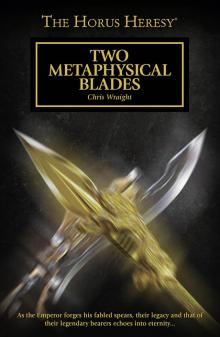 Two Metaphysical Blades
Two Metaphysical Blades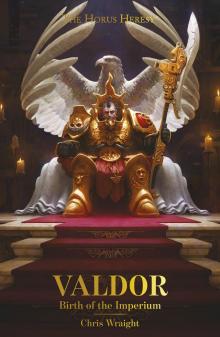 Valdor: Birth of the Imperium
Valdor: Birth of the Imperium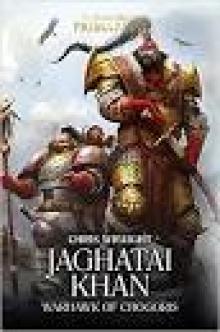 JAGHATAI KHAN WARHAWK OF CHOGORIS
JAGHATAI KHAN WARHAWK OF CHOGORIS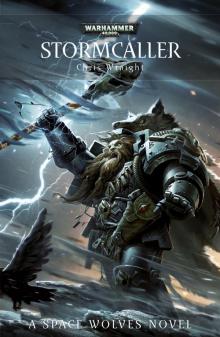 Stormcaller
Stormcaller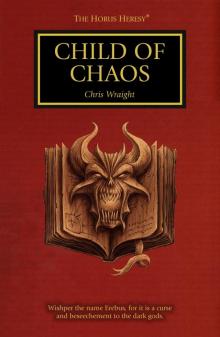 Child of Chaos
Child of Chaos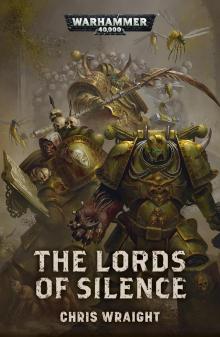 The Lords of Silence
The Lords of Silence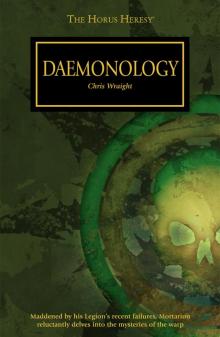 Daemonology
Daemonology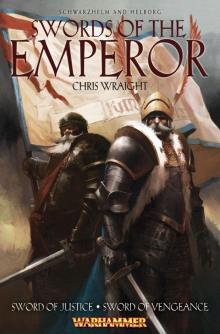 Swords of the Emperor
Swords of the Emperor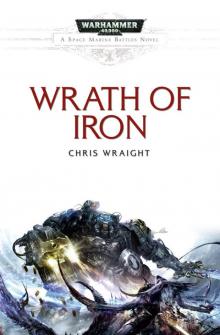 Wrath of Iron
Wrath of Iron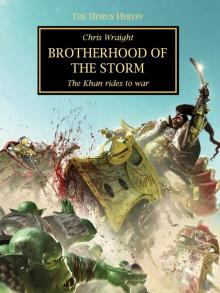 Brothers of the Storm
Brothers of the Storm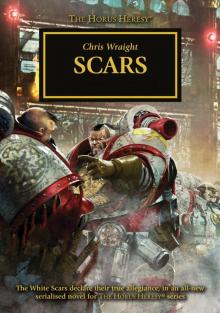 Horus Heresy: Scars
Horus Heresy: Scars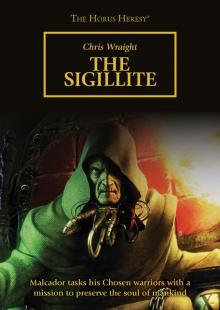 The Sigillite
The Sigillite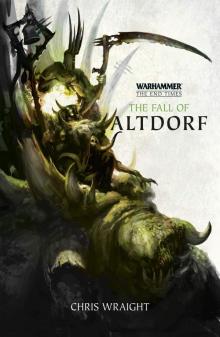 The End Times | The Fall of Altdorf
The End Times | The Fall of Altdorf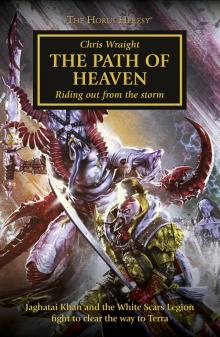 The Path of Heaven
The Path of Heaven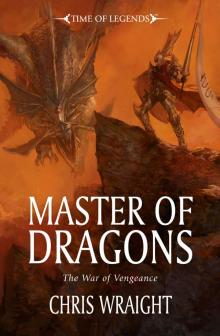 Master of Dragons
Master of Dragons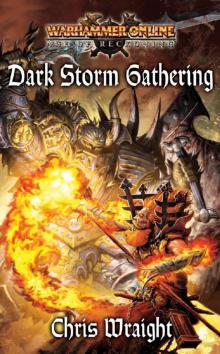 WH-Warhammer Online-Age of Reckoning 02(R)-Dark Storm Gathering
WH-Warhammer Online-Age of Reckoning 02(R)-Dark Storm Gathering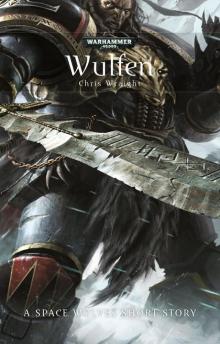 Wulfen
Wulfen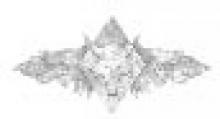 Battle Of The Fang
Battle Of The Fang Onyx
Onyx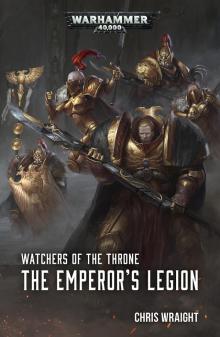 Watchers of the Throne: The Emperor’s Legion
Watchers of the Throne: The Emperor’s Legion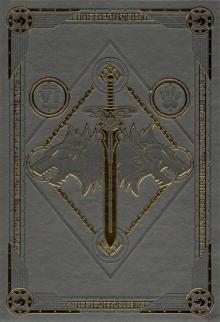 Leman Russ: The Great Wolf
Leman Russ: The Great Wolf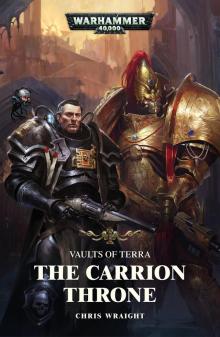 Vaults of Terra: The Carrion Throne
Vaults of Terra: The Carrion Throne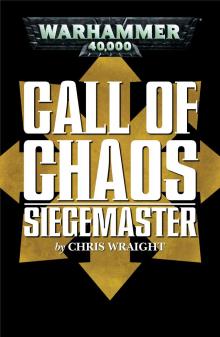 Siegemaster
Siegemaster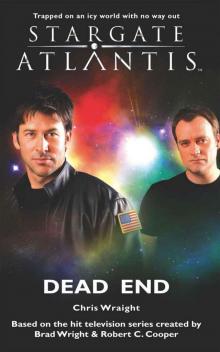 STARGATE ATLANTIS: Dead End
STARGATE ATLANTIS: Dead End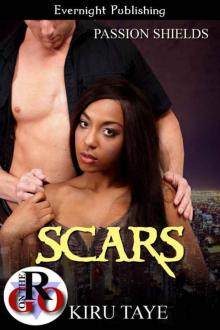 Scars
Scars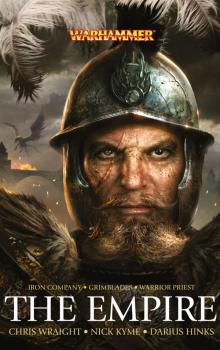 The Empire Omnibus
The Empire Omnibus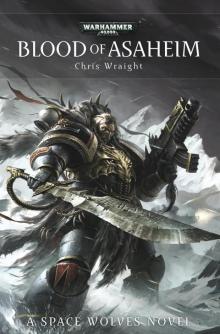 Blood of Asaheim
Blood of Asaheim